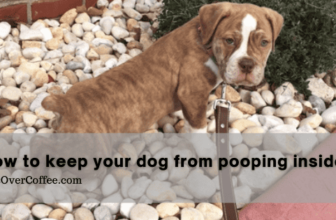
[ad_1]
Two former Ontario conservation officers are imploring the province to reverse plans to expand a sport that allows dogs to track down captive coyotes, foxes, and rabbits in massive fenced-in pens.
Rick Maw and Wayne Lintack say the dog sport, often referred to as training and trialing, is cruel to the captive prey and well-meaning regulations are impossible to enforce.
Natural Resources Minister Graydon Smith says the sport is safe for both dogs and prey since it doesn’t call for contact between the animals.
But coyotes have been hurt and killed by dogs in the pens, Maw and Lintack say.
The training component sees hunting dogs let loose in these areas, which are often hundreds of hectares in size, but fenced in around the perimeter. The dogs learn to hunt animals like coyotes, which are caught in the wild and re-homed to these areas.
The trailing portion involves competitions with judges who score the dogs on their hunting skills. Points are awarded and champions are crowned.
But the retired Ministry of Natural Resources conservation officers who tried to enforce dog train-and-trial regulations say the enclosures should be banned outright.
“How is this a fair chase?” Maw said. “This is a sport of cruelty.”
Former premier Mike Harris’s Progressive Conservative government wanted to regulate captive wildlife in the province in the 1990s. As part of the Fish and Wildlife Conservation Act created in 1997, the province launched a licensing regime for dog train-and-trial areas.
It licensed about 60 such areas at the time, but banned the sale or transfer of those licenses and did not issue new ones. The government intended to phase out the sport over time.
Now, there are 24 such places left in the province. Six are licensed to hold coyotes, the province said.
After lobbying from hunters, Doug Ford’s government decided to expand the sport.
The province has proposed to grant new licenses through a one-time 90-day application period and allow licenses to be transferred to new owners, a summary of proposed changes on the Environmental Registry of Ontario shows.
The changes are included in Bill 91 – the Less Red Tape, Stronger Economy Act – that will soon become law.
Public commenting ended on May 18. Both Maw and Lintack filed comments.
Maw is a former enforcement supervisor with the ministry and, before that, an intelligence officer who ran special investigations. He and his colleagues uncovered an underground coyote trade ring where animals caught illegally were put in a small room in a barn and sold off.
In the mid-2000s, Maw noticed one hunter they had pulled over had several coyotes stuffed into a dog crate in the back of a truck. The coyotes were injured by the hunter’s dogs and were apparently on their way to a vet, which Maw called a loophole in the legislation.
“There was nothing we could do,” Maw said, so they had to let the hunter go with the animals. But he soon began talking to other conservation officers who reported seeing other coyotes stuffed into dog crates.
In 2006, Maw put together an undercover operation to figure out what was happening.
They had an officer go undercover with a group of train-and-trial hunters. The hunters would unleash their dogs in winter to track down coyotes. They’d swap out the dogs after an hour for fresh dogs. Some coyotes gave up due to exhaustion after being cornered by dogs. Sometimes, though, the dogs and coyotes fought.
“Some of the coyotes died during these fights and many were hurt,” Maw said.
We hunted with the group and caught a coyote every day.”
Those coyotes would then be sold to train-and-trial areas, he said.
On April 2, 2006, conservation officers fanned out across southern and central Ontario for a series of raids. They seized nearly two dozen live coyotes and laid hundreds of charges. The criminal case eventually fell apart because it took so long to get to trial, but the province shut down a train-and-trial area where coyotes were found packed in a barn.
What stays with Lintack from that day is the sight of the coyotes in a cramped barn room.
All these coyotes are piled up in the corner, like on top of each other, they were just terrified,” said Lintack, a conservation officer who helped license dog train-and-trial areas as well as inspect them afterward.
The big problem for Maw and Lintack, both longtime hunters, is that the legislation was largely unenforceable.
“Our audits didn’t catch anything on this train-and-trial area, they had logbooks that looked good, they said they had the same number of coyotes since they were licensed nine years earlier and everything was great,” Maw said.
Lintack said he was never confident the law was being followed.
“It’s hundreds of acres in size, I couldn’t count the coyotes, I couldn’t see any of them so at the end of the day it’s really just based on the honor system,” he said.
Melissa Candelaria, a spokeswoman for the natural resources minister, said conservation officers will inspect the train-and-trial areas and “will not hesitate to issue fines to facilities that do not meet the standard of care for wildlife, as they have in the past, and they will continue in the future.”
Failing to comply with the law could result in fines of either $25,000 or $100,000, up to two years in jail, and license revocation, she said.
Phasing out facilities would force sporting dog professionals to train dogs on public land putting the dogs, wildlife, and the public at risk,” Candelaria said.
The province called the situation in 2006 “illegal dogfighting rings posing as train and trial facilities.”
The government’s plan has found opposition at Queen’s Park.
John Fraser, the interim Liberal leader, said his party cannot support the expansion of the sport.
“This is just messed up,” he said.
People hunt with dogs, we know that, but to actually have a pen in which you have dogs attacking other wildlife and no way to ensure that the cruelty doesn’t happen, it’s not right.
Green Party Leader Mike Schreiner called the proposed expansion a “giant step backward.”
“No other Canadian province permits penned dog hunting,” he said. “Instead of opening new applications, the government should prioritize strengthening the existing legislation that bans new facilities, and shutting down the few that remain.”
The Ontario Sporting Dog Association did not respond to requests for comment, but its president told a provincial committee earlier this month the sport was safe for both dogs and prey.
John Bell said the dogs are always under control and can be called off at any time by their handlers. He said his trial-and-train area is more than 200 acres in size with built-in protections like vented, underground barrels coyotes can escape to if dogs get too close.
The Ontario Federation of Anglers and Hunters also supports the proposed expansion.
For Lintack, the choice is obvious: the sport should be banned.
“It’s just really out of whack in relation to what’s ethical and the humane treatment of wildlife,” he said.
This report by The Canadian Press was first published May 31, 2023.
Liam Casey, The Canadian Press
[ad_2]







